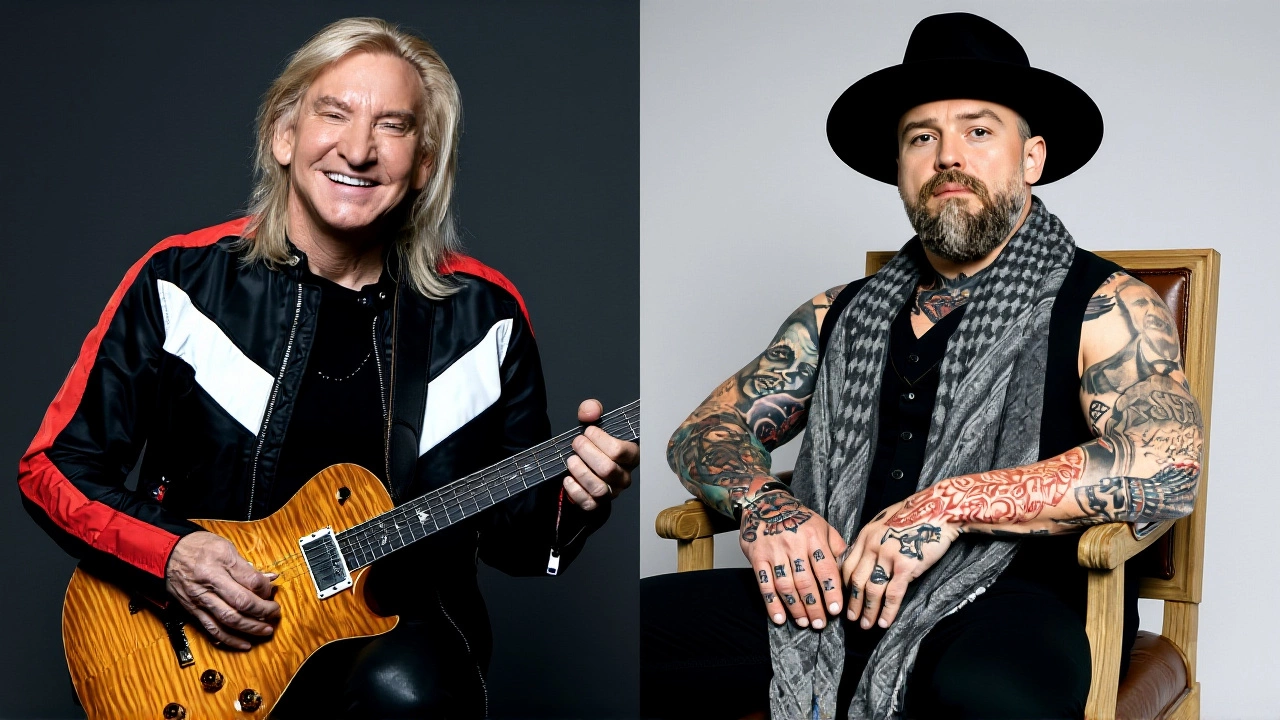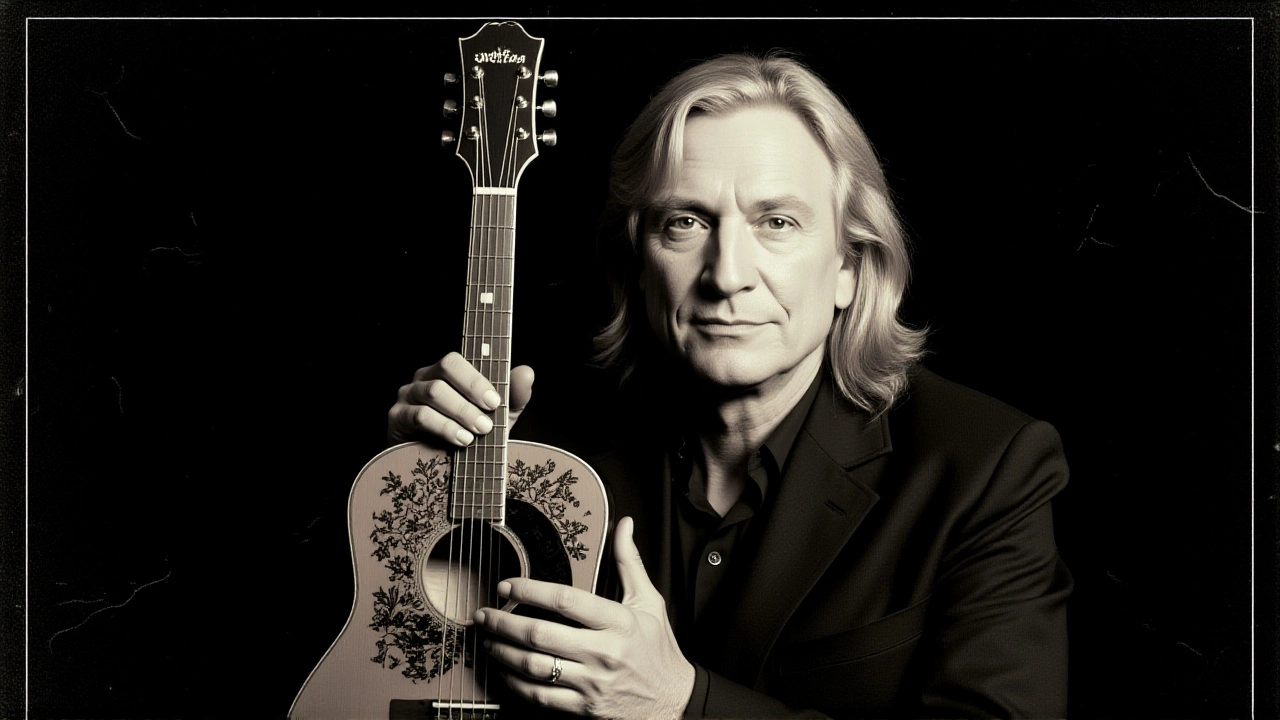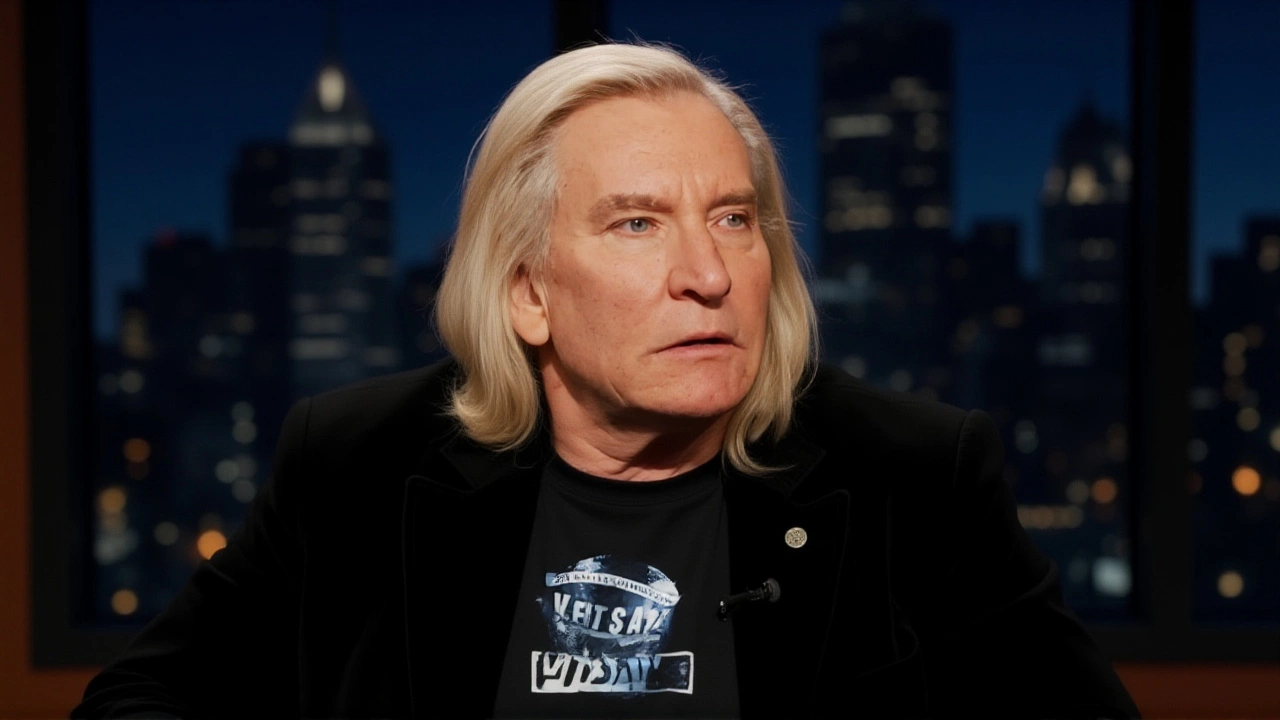Joe Walsh and Zac Brown Join 'The Voice' Season 28 as Mega Mentors for Knockout Round

Nov, 20 2025
When NBC dropped the surprise announcement on October 20, 2025, that Joe Walsh and Zac Brown would step into the spotlight as Mega Mentors for The Voice Season 28NBC’s Knockout Round, viewers didn’t just get a boost in star power—they got a masterclass in how music legends shape careers. The pair, one a rock icon with decades of grit, the other a country powerhouse with chart-topping warmth, will guide contestants through the most brutal phase of the competition yet: no saves, no steals, just pure performance under pressure. The Knockouts begin October 27, 2025, at 8 p.m. ET on NBC, with episodes dropping the next day on Peacock.
Who Are the Mega Mentors, and Why It Matters
Joe Walsh, 77, doesn’t just play guitar—he defines it. As a founding member of the Eagles, his solo hit "Walk Away" still echoes in arenas, and his 1998 Rock and Roll Hall of Fame induction isn’t just a plaque—it’s a legacy. He’ll be working with coaches Niall Horan and Reba McEntire, helping artists channel raw emotion into rock-inflected performances. "He doesn’t teach technique," one former contestant told NBC Insider. "He teaches truth. You don’t sing to win—you sing because you can’t not sing." Meanwhile, Zac Brown, 47, brings a different kind of authority. A three-time Grammy winner and the force behind country smashes like "Chicken Fried" and "Toes," Brown’s recent collaborations have been quietly seismic. His August 2025 track with Snoop Dogg, "Let It Run,"—a laid-back, genre-blurring anthem about modern life and letting go—showed he’s not just a country act but a cultural connector. He’ll mentor teams led by Michael Bublé and Snoop Dogg, bridging pop, country, and hip-hop in ways few mentors could. "Music changed my life," Brown posted on Instagram. "Now I get to help light that spark for someone else."The Knockout Round: No Safety Nets, Just Raw Talent
This season’s Knockout Round is unlike any before. Each coach enters with eight artists. By the end, only four advance. No last-minute saves. No steals from other teams. Just two singers, one song, one coach’s decision. It’s brutal. It’s real. And it’s designed to expose who’s got the guts to stand alone. Unlike the Battle Rounds—where Nick Jonas guided Reba’s team, Lizzo helped Snoop, Lewis Capaldi supported Niall, and Kelsea Ballerini worked with Bublé—the Knockouts are stripped down. No advisors. No distractions. Just the coach, the contestant, and the weight of the moment. And then there’s the new twist: the "Mic Drop" button.The Mic Drop: A Golden Ticket to the Rose Parade
Each coach gets one "Mic Drop" pick—a single artist whose performance they believe is unforgettable. Those four artists, chosen by the coaches, go head-to-head in a viewer vote. The winner gets a live performance slot at The Rose Parade Presented by HondaPasadena, California on January 1, 2026. That’s not just exposure—it’s a cultural milestone. Millions tune in. Families gather. And for a contestant who’s never been on a stage bigger than a high school auditorium? This could be the moment everything changes. "It’s not just about who sings the best," said executive producer John Legend in a behind-the-scenes clip. "It’s about who leaves a mark. Who makes you feel something you didn’t know you needed."
Why This Season Feels Different
Season 28 isn’t just adding big names—it’s redefining mentorship. Previous seasons leaned on pop stars and producers. This time, they brought in architects of sound. Walsh’s gritty, bluesy phrasing? Perfect for artists who need to dig deeper. Brown’s storytelling, his ability to make a simple lyric feel like a lifetime? Ideal for singers who want to connect, not just impress. And the timing? Brilliant. With the music industry still reeling from streaming fatigue and algorithm-driven playlists, NBC is quietly reminding viewers: real talent still matters. Real emotion still moves people.What’s Next: The Playoffs and Beyond
After the Knockouts, the remaining 16 artists (four per coach) enter the Playoffs—the final round before the live shows. Here, America’s vote takes over. But the foundation is set in these Knockouts. The artists who survive won’t just be good. They’ll be forged. The Rose Parade winner will be announced before the Knockouts end, likely in early November. The live shows begin in December, with the finale scheduled for late May 2026.
Background: The Voice’s Evolution
Since its 2011 debut, The Voice has been built on the idea that voice matters more than image. But over the years, it’s leaned harder into drama, twists, and celebrity cameos. This season feels like a return to roots—less spectacle, more substance. Walsh and Brown aren’t here for the cameras. They’re here because they remember what it felt like to be that kid with a guitar and a dream. Brown’s collaboration with Blake Shelton on "Out in the Middle" in 2023 was a quiet triumph. Now, he’s stepping into the same arena where Shelton once coached. And Walsh? He’s not just a guest. He’s a living archive of rock history.Frequently Asked Questions
How does the "Mic Drop" feature work, and who can vote?
Each coach selects one artist from their team as their "Mic Drop" pick during the Knockouts. These four artists are then put to a public vote via the NBC app and website. Viewers can vote once per day during the voting window, which opens after the final Knockout episode airs and closes 24 hours later. The winner earns a live performance at The Rose Parade on January 1, 2026, broadcast nationwide.
Why are Joe Walsh and Zac Brown considered Mega Mentors instead of just guest advisors?
Unlike Battle Advisors who assist during rehearsals, Walsh and Brown are embedded in the Knockout Round’s decision-making process. They sit beside the coaches during performances, offer direct feedback, and influence who gets chosen to advance. Their role is more hands-on, more influential, and carries the weight of their legendary status—hence "Mega Mentor."
What’s the difference between the Battle Rounds and the Knockout Rounds?
In the Battle Rounds, two artists from the same team sing the same song together, and the coach picks one to advance. In the Knockout Rounds, artists perform solo against a teammate, with no duets, no saves, and no steals. Only the coach’s choice matters. It’s a higher-stakes, more personal test of individual artistry.
Can a contestant be saved if they lose the Knockout?
No. This season eliminated all save mechanisms—no steals, no coaches’ saves, no wildcard picks. Once a contestant loses their Knockout, they’re out. That makes every performance feel like a final audition. It’s the most unforgiving round in the show’s history.
How did Zac Brown end up working with Snoop Dogg?
Their collaboration on "Let It Run" in August 2025 was a surprise hit that blended country storytelling with hip-hop swagger. The track’s lyrics—"We got cars that drive themselves, we put people into space / But can we please stop doin’ things like it’s 1998"—showed mutual respect and creative curiosity. That chemistry led to Brown being chosen as a mentor for Snoop’s team, bridging generational and genre gaps on the show.
Is this the first time The Voice has used rock legends as mentors?
Not exactly. Past seasons featured mentors like Adam Levine and John Legend, but Walsh is the first Rock and Roll Hall of Fame inductee to serve as a full Knockout mentor. His presence signals a deliberate shift toward honoring musical legacy, not just pop relevance.